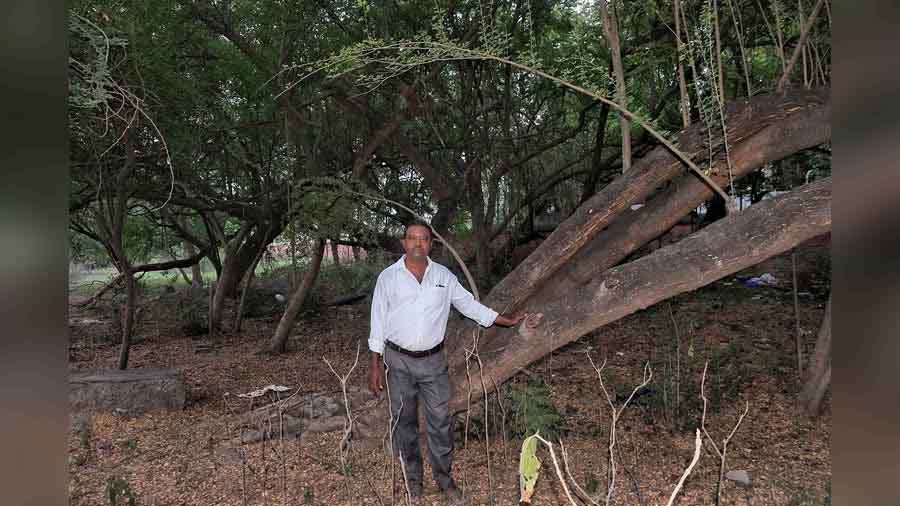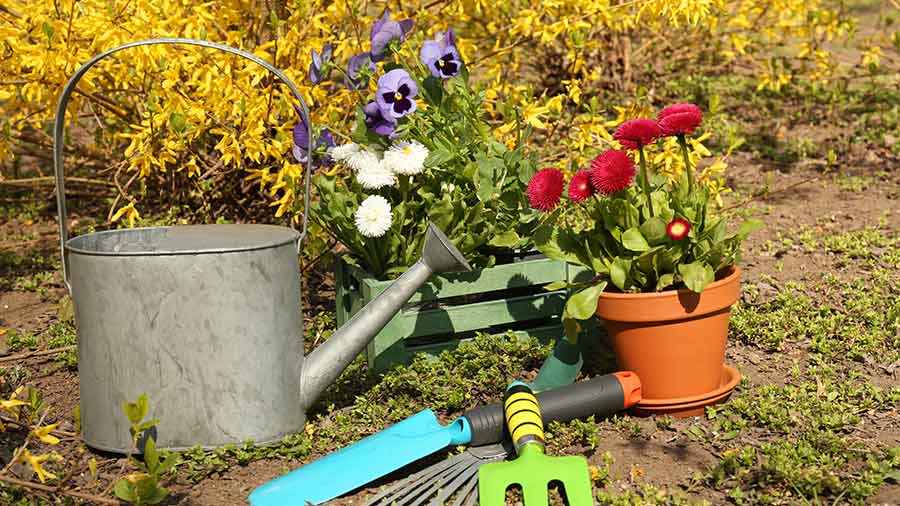In a scorching June afternoon in south Kolkata, as advocate Mantu Hait led the way to a vacant plot of the Port Trust plot under the Durgapur Bridge, he assured, “It’s not as hot there” and even as the rest of the city was reeling under the intense weather conditions, Hait remained calm and composed.
After reaching the lush green spot under the Durgapur and Majerhat Bridges, Hait said, “See, how cool this place is compared to the rest of the city. We have been developing this forest here for the last 20 years. The trees not only help the local biodiversity to thrive but also absorb the heat,” Hait said. Interestingly, the place isn’t sizzling even as 500 trees had been felled earlier thanks to construction work.
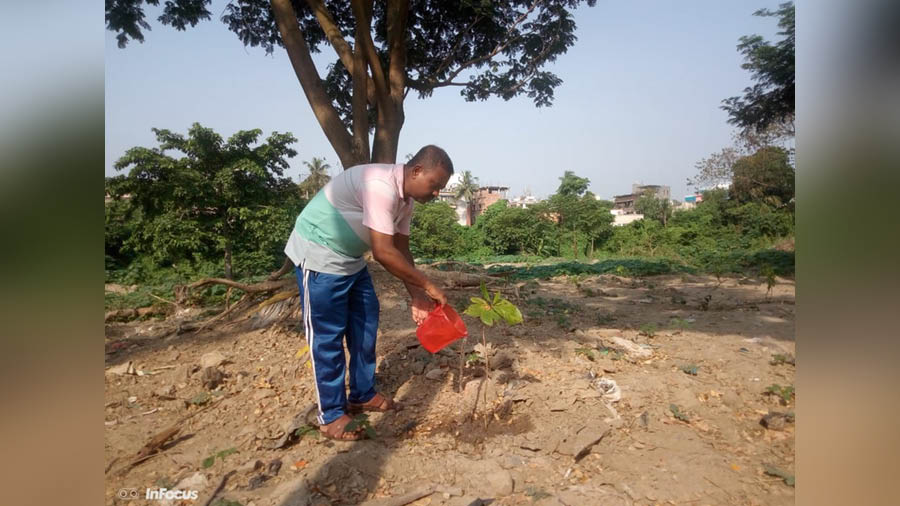
Hait’s mission is to turn vacant patches of land into green spots
This is one of the many lands where Mantu Hait, 46, has been spreading his green mission for the last 20 years. “Guerrilla Gardening” is what he calls his mission. Hait’s mission is to turn vacant patches of land into green spots. Far from the concept of manicured gardening, Hait is into planting indigenous plants which in turn help birds and insects thrive.
Started from childhood
Hait’s first project began at this Kolkata Port Trust land, where he launched his green mission way back in the early 2000. A resident of Chetla, Hait’s father and uncle were footballers and would visit the place with Hait in the early 1990s. “The land had plenty of trees and bushes and I used to spend a lot of time here and admire the greenery. But in the late 90s with rapid urbanisation, garbage was dumped here and the trees vanished,” said Hait. Then a student, Hait would collect seeds of fruit-bearing trees and plant them.
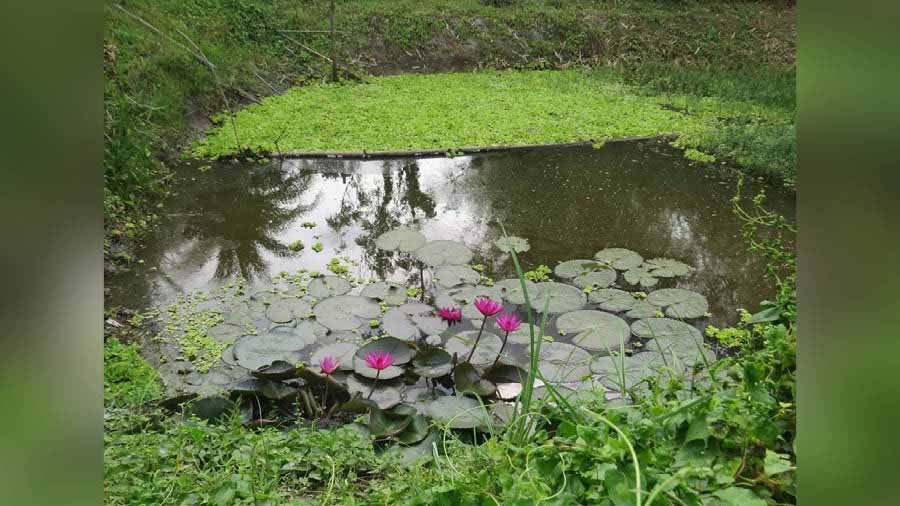
Dragonfly park with ‘Guerrilla Gardening’
Soon he started volunteering with a local NGO called Prakriti Samsad. Initially, he pitched in with raw material. Friends and family donated too. Another NGO, the Alipore Environmental Association, reached out and a few volunteers helped him clear out garbage.
After two monsoons, the area began to change and the locals noticed it. “I wrote to the Kolkata Port Trust (KoPT) seeking their permission for plantation but didn’t get a revert and went ahead with my plan to restore the green lungs of our area,” Hait said. By 2005, Hait started practising law and with that, he realised that his attempt needed to be institutionalised.
Buying more land
Realising that he needed to own land to create several pieces of green havens, Hait and a professor friend bought a 2.6-acre land in Howrah, Amta in 2005 and started their green venture. The duo also prepared the area for natural breeding of indigenous fish species. There is a 1200-foot-long canal alongside the land and during monsoon, the entire land gets submerged allowing the indigenous fish species to breed across the area.

He buys seeds or fruits and distributes among the people
More recently, Mantu, with help from the other associates, has purchased land in Sunderbans and Bakkhali with their hard-earned money to fulfil his green mission. He plans to make a nature study camp at his Bakkhali plot. He is looking for land in Purulia too “We have created around eight ponds at the Sunderbans plot and have started breeding dragonflies. This is probably the first dragonfly park in India at the Sunderbans Delta Eco Tourism Cottage & Nature Study Camp,” Hait said adding that dragonflies are known for curbing the mosquito population and are a very important part of the ecosystem. Since he started realising his vision, Hait has grown at least 3,000 trees so far. Unlike the government’s initiative, Hait doesn't plant only Ashoka or Radhachura trees but his mission includes indigenous fruit-bearing trees which help the local biodiversity. Besides, he spends around Rs 10,000 annually to purchase seeds or fruits to distribute among the people.
Relentless efforts
After putting in his hard-earned money and effort to fulfil his green mission all these years, Hait has realised that without the active participation of the masses, large-scale success cannot be achieved and for that, he began organising several nature camps with students. Hait also approached the heads of the botany and zoology departments of several colleges. “In the past 20 years, several students have done their research on these lands. The biodiversity is huge and several almost-extinct species of fish and insects can be seen there,” he added.
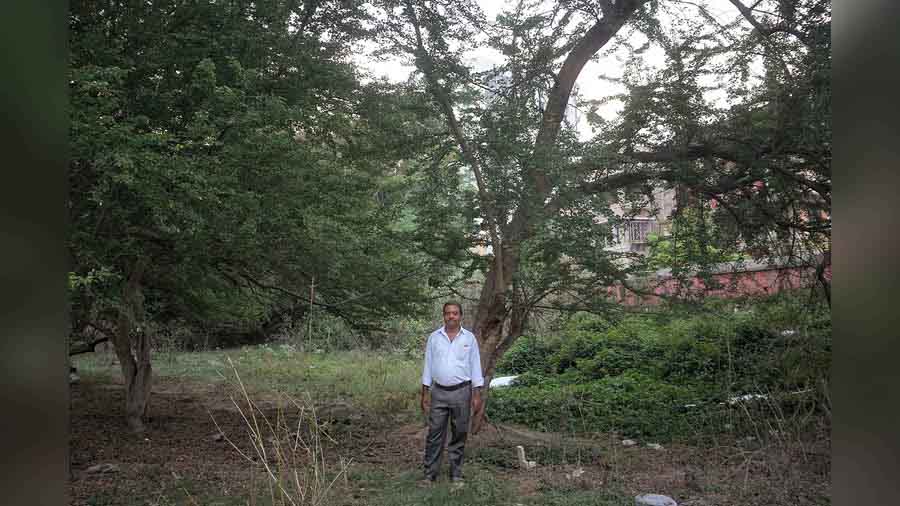
Hait has grown at least 3,000 trees so far
Hait is also promoting ecotourism in some of the locations. He is also creating a forest on a 25,000 sq ft plot at Amtala for a private owner. “People are getting more and more interested in saving the environment. I took up this project following the owners’ request,” he said.
